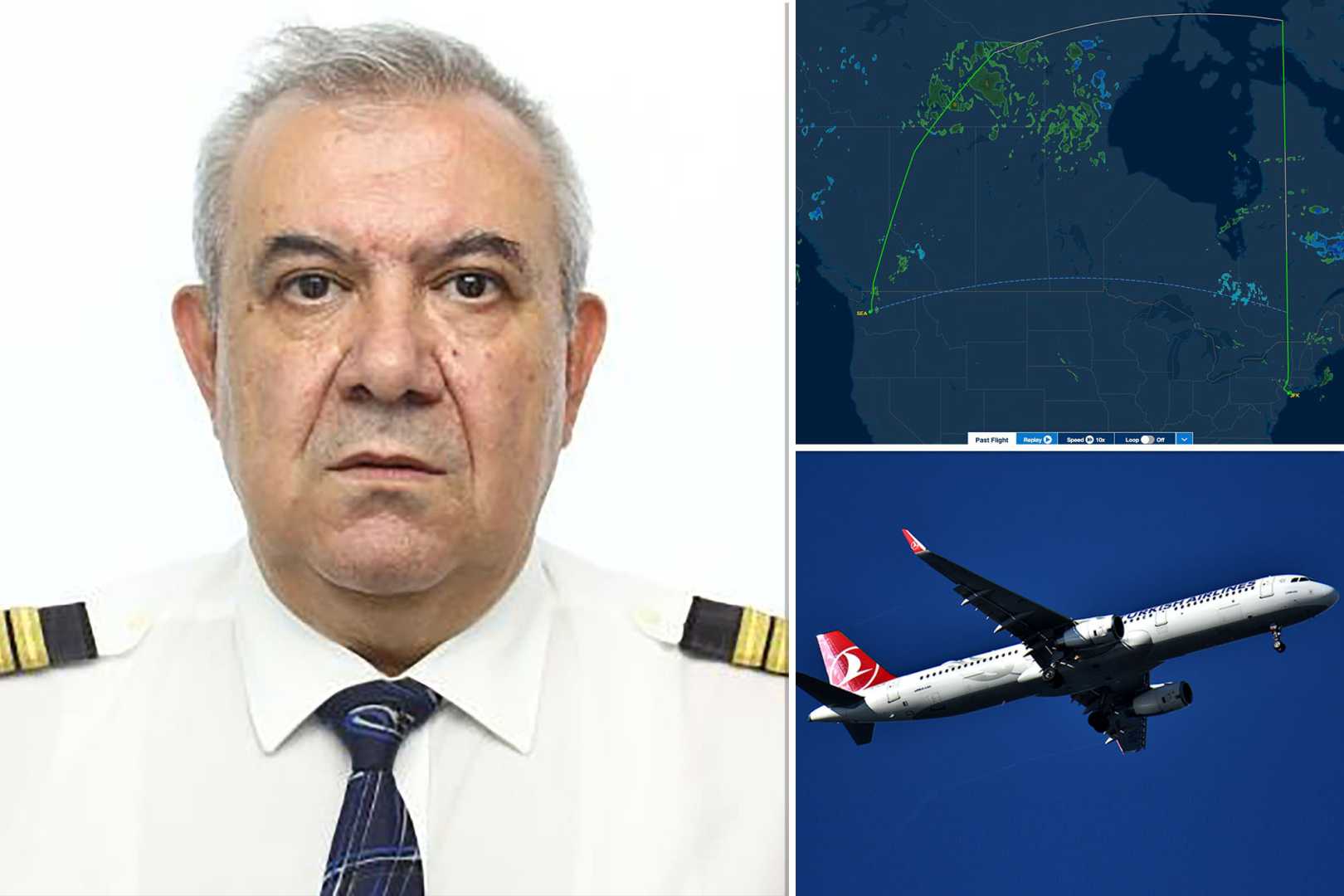News
Turkish Airlines Pilot Dies Mid-Flight, Forcing Emergency Landing in New York

A Turkish Airlines flight en route from Seattle to Istanbul was forced to make an emergency landing in New York after the pilot collapsed and died mid-flight. The pilot, identified as Captain Ilcehin Pehlivan, was 59 years old and had been with the airline since 2007.
The incident occurred shortly after the flight, designated TK204, took off from Seattle. The crew attempted emergency medical treatment, but the captain was declared dead before the plane could land. Flight data indicates that the Airbus A350 initially flew over Canadian territory before making a sudden turn towards John F. Kennedy International Airport, where it landed at approximately 6 a.m. local time on Wednesday.
Yahya Ustun, a spokesperson for Turkish Airlines, confirmed the captain’s death and noted that he had undergone a medical examination earlier in the year, which revealed no health issues. “When first aid to our captain on the plane was unsuccessful, the cockpit crew decided to make an emergency landing, but he died before landing,” Ustun explained.
In the aftermath of the emergency landing, arrangements were made for passengers to continue their journey to Turkey. Mr. Ustun expressed condolences, saying, “We wish God’s mercy to our captain and patience to all his colleagues and loved ones, especially his grieving family.”
The cause of the captain’s death has yet to be disclosed. The Turkish air traffic controllers’ association, TATCA, also offered condolences, recognizing Captain Pehlivan’s years of service to the aviation community.
International aviation regulations require pilots to undergo annual medical exams, and those over the age of 40 must renew their medical certifications every six months. This incident follows another tragic in-air death of a pilot in 2015, which occurred on a flight from Phoenix to Boston.
The European Union Aviation Safety Agency (EASA) has recently put forward a proposal that could allow single pilot operations in certain phases of flight. This initiative has been met with opposition from pilot associations, who argue that reducing the number of crew jeopardizes in-flight safety.












